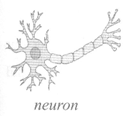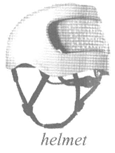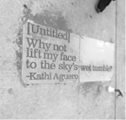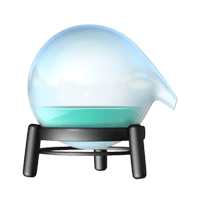北京市西城区2020-2021学年下学期高二年级期末考试英语试卷
本试卷共140分。考试时长120分钟。
第Ⅰ卷(共75分)
I. 听力理解(共三节,22.5分)
第一节:(共4小题;每小题1.5分,共6分)
听下面四段对话,每段对话后有一道小题,从每题所给的A、B、C三个选项中选出最佳选项。每段对话你将听一遍。
1. What is the woman’s suggestion for the man?
A. Having a good rest.
B. Doing more exercise.
C. Taking some medicine.
2. Where did the man study last night?
A. At his home. B. At the Smiths’. C. At a café.
3. What does the man like to read best?
A. Romantic poetry.
B. Detective novels.
C. Science fiction.
4. What is the man probably doing?
A. Creating a design.
B. Introducing a major.
C. Having an interview.
第二节:(共6小题;每小题1.5分,共9分)
听下面三段对话,每段对话后有两道小题,从每题所给的A、B、C三个选项中选出最佳选项。每段对话你将听两遍。
听第5段材料,回答第5至第6小题。
5. Why did the woman start to learn dancing?
A. She wanted to become a dancer.
B. She had to take part in a show.
C. She needed to keep in shape.
6. Who persuaded the man to learn piano?
A. His uncle. B. His teacher. C. His mother.
听第6段材料,回答第7至第8小题。
7. Why does the woman want to go to Argentina?
A. To learn more Spanish.
B. To study the local environment.
C. To do some research on farming.
8. What may the woman do next?
A. Take a Spanish course.
B. Write an application letter.
C. Talk to the program director.
听第7段材料,回答第9至第10小题。
9. What does the woman think of buying a blind box?
A. She seems unsure.
B. She shows interest.
C. She rejects the idea.
10. What are the two speakers mainly talking about?
A. Why people like blind boxes.
B. When people buy blind boxes.
C. What is usually in blind boxes.
第三节:(共5小题;每小题1.5分,共7.5分)
听下面一段独白,根据题目要求在相应的横线上写下第11题至第15题的关键信息。每小题仅填写一个词。这段独白你将听两遍。
How to Decorate Your New Apartment | |
Determine the ___11___ | • Simple: less color design • Industrial: cool color tones |
Break down the plan | • Prioritize what rooms are most ___12___ • Start with the ___13___ or the living room |
Choose the furniture | • ___14___ for the size you want beforehand • Go to the ___15___ physical store |
II. 完形填空(共15小题;每小题1.5分,共22.5分)
阅读下面短文,掌握其大意,从每题所给的A、B、C、D四个选项中,选出可以填入空白处的最佳选项。
The real act of discovery is not in finding new lands, but in seeing with new eyes.
—Marcel Proust
As a young social worker in a New York City psychiatric (精神病的) clinic, I was asked to see Roz, a twenty-year-old woman who had been sent to us from another psychiatric facility. It was a(n)___16___ case, because no information was received ahead of her first appointment. I was told to figure out by myself what her ___17___ were and what she needed.
___18___ a diagnosis (诊断) to go on, I saw Roz as an unhappy, misunderstood young woman who hadn’t been listened to in her earlier treatment. Her family situation was unpleasant. I didn’t see her as disturbed, ___19___ as lonely and misunderstood. She responded so positively to being heard. I worked with her to start a life worth living—to find a job, a satisfying place to live and new ___20___. We got along well, and she started making great ___21___ in her life right away.
The records from the ___22___ psychiatric facility arrived a month after Roz and I began our successful work together. To my complete ___23___, her records were several inches thick, describing a number of psychiatric hospital stays. Her diagnosis was “paranoid schizophrenic,” with a comment on her being “hopeless”.
That had not been my experience with Roz at all. I decided to ___24___ those pieces of paper. I never treated her as if she had that “hopeless” diagnosis. It was a lesson for me in ___25___ the value and certainty of diagnoses. I did find out about the horrors for Roz of being treated badly. I also learned a lot from her about ___26___ such upsetting circumstances.
First Roz found a job, then a place to live away from her ___27___ family. After several months of working together, she introduced me to her husband-to-be, a successful businessman who loved her very much.
When her treatment was ___28___, Roz gave me the gift of a silver bookmark and a note that said, “Thank you for ___29___ me.”
I have carried that note with me and I will for the rest of my life to remind me of the stand I take for people, thanks to one brave woman’s ___30___ over a “hopeless” diagnosis.
16. A. simple B. predictable C. unusual D. obvious
17. A. problems B. differences C. interests D. requests
18. A. In B. By C. For D. Without
19. A. and B. so C. but D. or
20. A. beliefs B. relationships C. choices D. adventures
21. A. discoveries B. changes C. decisions D. appointments
22. A. previous B. famous C. nearby D. special
23. A. delight B. disappointment C. surprise D. satisfaction
24. A. accept B. read C. copy D. forget
25. A. establishing B. questioning C. selecting D. reducing
26. A. controlling B. exploring C. following D. surviving
27. A. reliable B. peaceful C. difficult D. homeless
28. A. completed B. recommended C. planned D. required
29. A. entertaining B. believing C. raising D. training
30. A. preference B. concern C. argument D. victory
III. 阅读理解(共15小题;每小题2分,共30分)
阅读下面短文,从每题所给的A、B、C、D四个选项中选出最佳选项。
A
A Hug from a Teenage Boy
Fifteen years spent in the field of education have provided Nancy Marra with many treasured moments. One of the most endearing happened when she was teaching second grade.
That year, she decided to plan something special for the children: a Mother’s Day tea. After all the preparations were made for it, each child took home an invitation. Nancy was surprised and relieved to see that every mother was planning to attend. She even invited her own mother.
Finally, the day arrived. That afternoon, each child lined up at the classroom door expecting the arrival of his or her mom. As it got closer to starting time, Nancy looked around and her eyes quickly found Jimmy. His mother hadn’t shown up and he was looking upset.
Nancy took her mother by the hand and walked over to Jimmy. “Jimmy,” Nancy said, “I have a bit of a problem here and I was wondering if you could help out. Since I’m going to be really busy today, I was wondering if you could keep my mother company.”
Nancy’s mom and Jimmy sat at a table with two other mother-child pairs. Jimmy served Nancy’s mom her treats, presented her with the gift Nancy had made, and pulled out and pushed in her chair, just as they had practiced the day before. Whenever Nancy looked over, her mom and Jimmy were in deep conversation.
Ten years later, Nancy was at a high school to take a senior class on a field trip, and there was Jimmy. On the way back, Nancy had the students complete an evaluation form of their trip. She collected and checked the forms one by one.
When she came to Jimmy’s evaluation page, he had written, “Remember our Mother’s Day tea we had in second grade, Mrs. Marra? I do! Thanks for all you did for me, and thank your mother, too.”
As they began unloading at the school, Jimmy made sure he was the last one to go. Nancy told him she really enjoyed what he had written. He looked rather embarrassed, mumbled (咕哝) his own thanks, and then turned to walk away. As the bus driver began pulling the bus away, Jimmy ran back and knocked on the bus door. He jumped back on board and gave Nancy a big hug. “Thanks again, Mrs. Marra. No one even knew my mom didn’t make it that day!”
She ended her workday with a hug from a teenage boy who had probably stopped hugging teachers years ago.
31. Why was Jimmy paired with Nancy’s mother?
A. Nancy was too busy to spend time with her.
B. Jimmy’s mother didn’t come to the event.
C. Nancy wanted Jimmy to get to know her.
D. Jimmy could get along well with her.
32. Where did Jimmy meet Nancy ten years later?
A. Near Jimmy’s high school.
B. At a Mother’s Day tea.
C. In Nancy’s classroom.
D. On a field trip.
33. How did Jimmy feel about what Nancy had done for him?
A. Upset. B. Embarrassed. C. Grateful. D. Satisfied.
34. Which of the following best presents the theme of the passage?
A. No act of kindness is ever wasted.
B. A friend in need is a friend indeed.
C. A mother’s hug lasts long after she lets go.
D. The best teacher must be the best performer.
B

35. The five passes all include ________.
A. a dinner cruise B. a magic show C. a city tour D. a trolley ride
36. According to the rules and restrictions, ________.
A. visitors can return their tickets
B. reservations cannot be cancelled
C. passes cannot be shared among users
D. users can visit attractions more than once
37. To make reservations, you can ________.
A. write an e-mail B. make a phone call
C. send a text message D. fill out an online form
38. In which section of a newspaper would you most likely find this advertisement?
A. Leisure & Travel B. Health & Beauty
C. Restaurants & Food D. Sports & Entertainment
C
If you had the opportunity to live forever, would you take it? Keeping your body alive indefinitely still seems like an impossibility, but some scientists think that digital technology may have the answer: creating a digital copy of your “self” and keeping it “alive” online long after your physical body has ceased to function.
In effect, the proposal is to clone a person electronically. Unlike the familiar physical clones — children that have identical features as their parents, but that are completely separate organisms with a separate life — your electronic clone would believe itself to be you. How might this be possible? The first step would be to map the brain.

How? One plan relies on the development of nanotechnology (纳米技术). Ray Kurzweil — one of the kings of artificial intelligence — predicts that within two or three decades we will have nano transmitters that can be put into the bloodstream. In the capillaries (毛细血管) of the brain, they would line up alongside the neurons and detect the details of the cerebral (大脑的) electronic activity. They would be able to send that information to a receiver inside a special helmet, so there would be no need for any wires sticking out of the head.

As a further step, Ray Kurzweil also imagines the nano transmitters being able to connect you to a world of virtual reality on the Internet, similar to what was shown in the film “Matrix”. With the nano transmitters in place, by thought alone, you could log on to the Internet and instead of the pictures coming up on your screen, they would play inside your mind. Rather than send your friends e-mails you would agree to meet up on some virtual tropical beach.
Some people believe that they can enjoy life after death. But why wait for that when you could have a shot of nanobots (纳米机器人) and upload your brain onto the Internet and live forever as a virtual surfer?
One snag: to exist on the net you will have to have your neural network parked on the computer of a web-hosting company. These companies want real money in real bank accounts every year or they will wipe your bit of the hard disc and sell the space to someone else. With your body six feet underground how will you pay?
39. Which of the following statements is TRUE according to the passage?
A. Nano transmitters can help map the human brain.
B. Electronic clones recreate the original human body.
C. Electronic clones may put their physical selves into movies.
D. Nano transmitters use a helmet to detect the cerebral activities.
40. What is the author’s attitude towards electronic clones?
A. Optimistic and careful. B. Interested and unconvinced.
C. Excited and confused. D. Assured and critical.
41. The author asks “how will you pay?” at the end of the article, because ________.
A. you can’t pay to exist on the Internet if you are physically dead
B. you can’t pay for hard disc space if you don’t have a bank account
C. you can’t pay for a special service if too many people want to use it
D. you can’t pay the web-hosting company if you don’t have a neural network
D
Every day, millions of shoppers hit the stores in full force, searching wildly for the perfect gift. Aside from purchasing holiday gifts, most people regularly buy presents for other occasions throughout the year, including weddings, birthdays, anniversaries, and graduations. This frequent experience of gift-giving can
cause uncertain feelings in gift-givers. Many enjoy the opportunity to buy presents because gift-giving offers a powerful means to build stronger bonds, while many worry that their purchases will disappoint rather than delight the intended recipients (接受者).
Anthropologists describe gift-giving as a positive social process, serving various political, religious, and psychological functions. Economists, however, offer a less favorable view. According to Waldfogel, gift-giving represents an objective waste of resources. People buy gifts that recipients would not choose to buy on their own, or at least not spend as much money to purchase (a phenomenon referred to as
”the deadweight loss of Christmas”).
What is surprising is that gift-givers have much experience acting as both gift-givers and gift-recipients, but nevertheless tend to overspend each time they set out to purchase a meaningful gift. In the present research, we propose a unique psychological explanation for this overspending problem — gift-givers link how much they spend with how much recipients will appreciate the gift. Though it seems natural to gift-givers, such an assumption may be unfounded. Indeed, we propose that gift-recipients will be less likely to base their feelings of appreciation on the value of a gift than givers assume.
Why do gift-givers assume that gift price is closely linked to gift-recipients’ feelings of appreciation? Perhaps givers believe that more expensive gifts communicate a stronger sense of
thoughtfulness and consideration. According to Camerer and others, gift-giving represents a symbolic ritual (习俗), by which gift-givers attempt to signal their positive attitudes towards the recipient and their willingness to invest resources in a future
relationship. In this sense, gift-givers may be motivated to spend more money on a gift in order to send a “stronger signal”. As for gift-recipients, they may not interpret smaller and larger gifts as representing smaller and larger signals of thoughtfulness and consideration.
The idea of gift-givers and gift-recipients being unable to account for the other party’s viewpoint seems confusing because people slip in and out of these roles every day. Yet, despite the experience as both givers and receivers, people often struggle to apply information gained from one role in another. In theoretical terms, people fail to use information about their own preferences and experiences to produce more efficient outcomes in their exchange relations. In practical terms, people spend hundreds of dollars each year on gifts, but somehow never learn to estimate their gift expense according to personal insight.
42. The author uses “the deadweight loss of Christmas” in Paragraph 2 to express ________.
A. gift-givers don’t spend much money during holidays
B. gift-givers don’t ask recipients what gifts they prefer
C. gift-givers buy improper and expensive gifts
D. gift-givers have difficulty in choosing gifts
43. According to the passage, people buy gifts to ________.
A. receive gifts in return
B. enjoy the feeling of shopping
C. help recipients to save money
D. better relationships with recipients
44. What can we learn from the passage?
A. People’s high living standards require expensive gifts.
B. Gift-givers buy gifts based on their experiences as recipients.
C. Anthropologists think gift-giving meets different human needs.
D. Recipients judge the depth of friendship according to the gift price.
45. Why did the author write this article?
A. To criticize people’s gift-buying habits.
B. To analyze people’s gift-giving behaviors.
C. To offer advice on how to improve relationships.
D. To remind people not to overlook others’ preferences.
第Ⅱ卷(共65分)
I. 选词填空(共7小题;每小题2分,共14分)
用方框中单词的适当形式完成下列句子,每个单词只能用一次。
associate comfort convenience different disagree efficient gift |
46. The couple seem to have a ________ about the silliest of things every other day.
47. Every year, many ________ art students are given the chance to attend the summer painting camp.
48. Suggestions have been put forward to help the company to function more ________.
49. I tried my best to _________ my father after my grandpa passed away.
50. You could have picked me up at the airport and saved me the _________ of having to reserve a taxi.
51. Ever since my sister joined the city chess ________, she can beat me every time we play together.
52. The twins look exactly alike, but they ________ in character.
II. 语法填空(共10小题;每小题1分,共10分)
在未给提示词的空白处仅填写1个恰当的单词,在给出提示词的空白处用括号内所给词的正确形式填空。
53. Please don’t take ________ the posters, for the event is not over.
54. I like those cookies ________ are coated with chocolate frosting.
55. I entered the museum, ________ (carry) my folder of research.
56. Her hair ________ (smell) as pleasant as grassland wildflowers.
57. I look forward to ________ (explore) the countryside with my classmates.
58. The singer ________ (perform) his hit song hundreds of times in dozens of countries over the last two years.
59. My family didn’t have the money to send me ________ all the other kids went to receive education.
60. She ________ (leave) the restaurant already when I arrived there at the appointed time.
61. ________ (give) enough attention every day, his dog is sure to behave well.
62. –– Why didn’t you come to his birthday party on time?
–– Because the present I bought for him ________ (wrap) at the shop.
III. 完成句子(共5小题;第63、64题每题2分,第65、66、67题每题3分,共13分)
根据括号中所给提示完成下列句子。
63. 我厌烦了他无休止的抱怨。(be fed up with)
_______________________________________________________
64. 父母应该参与到孩子的教育中来。(involve… in…)
_______________________________________________________
65. 用金钱来衡量快乐是不对的。(in terms of)
_______________________________________________________
66. 请想想你怎样才能提升自己。(reflect on)
_______________________________________________________
67. 他从小就渴望加入NBA (long to do)
(long to do)
_______________________________________________________
IV. 阅读表达(共4小题;每小题2分,共8分)
阅读下面的短文的问题,根据短文内容,在相应题号后的横线上写下相关信息,完成对该问题的回答。答语要意思清楚,结构正确,书写工整。
When It Rains in Boston, the Sidewalks Reveal Poetry
If you’re walking through Boston during a downpour, make sure to keep your eyes on the sidewalk. You might just see a poem appear before your eyes. For nearly a year, Bostonians wandering the city streets in the rain may have come across poems written on the sidewalk.

Titled “Raining Poetry”, this art program was a partnership between the nonprofit Mass Poetry and the city of Boston. The first poems were written to celebrate the start of National Poetry Month. Several more were added to the city’s streets. Created using patterns and a water-proof spray (喷剂), the poems are invisible during dry, sunny weather, but appear like magic once raindrops start falling from the sky. “We want to bring poetry to the people,” Sara Siegel, program director for the nonprofit Mass Poetry said.
The poems were selected by Danielle Legros Georges, Boston’s poet laureate. Georges selected the poems, which were distributed throughout the city, based on their relationship to Boston, as well as the general themes of water and rain. “I wanted to draw work from poets influential in Boston’s literary, educational, or cultural areas,” Georges said in a statement.

The poems were put on the streets by members of the Mayor’s Mural Crew. The Mural Crew uses a biodegradable spray and simple cardboard patterns. The poems can be put on the sidewalk in minutes, and wear away in six to eight weeks. However, the city of Boston and Mass Poetry plan on carpeting city sidewalks with more poems. “It’s a public art project—as the poems are and will be put at public sites in Boston, and meant for everyone,” Georges said. “I think this is a wonderful way to bring poetry to the people.”
The poems appear throughout the city. They are in neighborhoods from Hyde Park to Roslindale. While all of the poems are presently written in English, Siegel hopes to add new ones in the languages that are spoken throughout Boston, like Portuguese, Haitian Creole and Spanish. “Our hope is that in the next two years, everyone in the city will come across a poem in their daily lives at least once or twice a month,” Siegel said. “This is a fun and unusual way to do that.”
So, if you’re out and about in Boston the next time it rains, keep an eye on the ground: You might just spot a poem shining under the raindrops.
68. When can people see poems on the sidewalks in Boston?(不多于3个单词)
_______________________________________________________
69. What’s the purpose of the “Raining Poetry” program?(不多于8个单词)
_______________________________________________________
70. Besides English, what other languages will probably be used in the program? (不多于5个单词)
_______________________________________________________
71. Do you like the “Raining Poetry” program? Why or why not?(单词数不限)
_______________________________________________________
V. 书面表达(20分)
假设你是红星中学高二学生李华。你的英国朋友Jim因为转到新的学校有一些苦恼,向有过同样经历的你寻求帮助。请你给他写一封回信,内容包括:
1. 你曾经在新学校遇到过的困难;
2. 你是如何克服困难的。
注意:词数不少于80。
Dear Jim,
__________________________________________________________________________
__________________________________________________________________________
Yours,
Li Hua
参考答案
第I卷 (75分)
I. 听力理解(共三节,22.5分)
第一、二节(共10小题;每小题1.5分,共15分)
1.A 2.C 3.B 4.C 5.B
6.A 7.C 8.B 9.C 10.A
第三节(共5小题;每小题1.5分,共7.5分)
11.style 12.important 13.kitchen 14.Measure 15.nearest
II.完形填空(共15小题;每小题1.5分,共22.5分)
16.C 17.A 18.D 19.C 20.B
21.B 22.A 23.C 24.D 25.B
26.D 27.C 28.A 29.B 30.D
III.阅读理解(共15小题;每小题2分,共30分)
31.B 32.D 33.C 34.A 35.D
36.C 37.B 38.A 39.A 40.B
41.A 42.C 43.D 44.C 45.B
第II卷(65分)
I. 选词填空(共7小题;每小题2分,共14分)
46. disagreement 47. gifted 48. efficiently 49. comfort
50. inconvenience 51. association 52. differ
II. 语法填空(共10小题;每小题1分,共10分)
53. down 54. that/which 55. carrying 56. smells/smelt/smelled
57. exploring 58. has performed 59. where 60. had left
61. Given 62. was being wrapped
III. 完成句子(共5小题;第63、64题每题2分,第65、66、67题每题3分,共13分)
63. I am fed up with his endless complaints.
64. Parents should involve themselves in their child’s education.
65. It is wrong to weigh happiness in terms of money.
66. Please reflect on how you can improve yourself.
67. He has longed to join the NBA since he was a little boy.
IV. 阅读表达(共4小题;每小题2分,共8分)
68. When it rains./On rainy days.
69. To bring poetry to the people in Boston.
70. Portuguese, Haitian Creole and Spanish.
71. Yes, I am in favor of this program. Magically presented poems on rainy days are more accessible and more artistic, allowing people a beautiful and restful moment in their fast-paced lives to appreciate the beauty of nature, literature and art. The poems are sure to awaken wonder and creative thoughts in those who travel Boston’s sidewalks.
V. 书面表达(20分)
One possible version:
Dear Jim,
I’m sorry to hear that you are wrestling with the problems caused by the school transfer, but I assure you things will get better.
Last year, I transferred to Hongxing School. As far as entering a new school goes, making new friends was the biggest challenge; I missed my baseball teammates so much. I also had trouble with my studies. Completing those extensive reading assignments on my tight schedule became a real headache.
I talked with my parents and teachers about my concerns. They encouraged me to take the initiative to reach out. Soon, I was making friends with my new schoolmates and getting involved in various activities. My academic performance also benefited from my newfound confidence.
So, don’t worry too much. Before you know it, you’ll have dozens of friends. Trust me, you’ll fit in soon.
Yours,
Li Hua
听力录音材料
第一节:听下面四段对话,每段对话后有一道小题,从每题所给的A、B、C三个选项中选出最佳选项。每段对话你将听一遍。
Text 1
M: I’ve had a headache for the last two days.
W: How did it start?
M: I just started to feel uncomfortable after skiing with my friends.
W: Don’t worry. It may just be the result of skiing in such low temperatures. I don’t think you need to take any medicine. Just drink some hot tea and get a good rest.
Text 2
W: How was your preparation for the exam?
M: You have no idea. My neighbor, Mr. Smith, held a birthday party last night. The noise was so loud that I couldn’t study at home.
W: Didn’t you go over to his flat and talk to him?
M: I was afraid it would destroy our relationship. So, I went to a café instead and spent the whole night preparing for the exam.
Text 3
W: I am really fascinated by the poem we read in class just now. No wonder Shakespeare is considered the greatest writer of all time.
M: That poem is a bit too romantic for me. Plus, I am not really into poetry.
W: Then what about science fiction novels? I saw you reading one yesterday.
M: It was just part of my homework. I like detective novels best. The stories are so dramatic and absorbing. I can’t pull myself out of the mysteries once I start reading.
Text 4
W: I see on your CV you got a master’s degree in architectural engineering.
M: Yes, madam, that’s right. And I have been working as an architect for 5 years since leaving university.
W: OK. Tell me why you want to work for our company.
M: The management here is effective and you have a large client base. And most importantly, I love many of your designs. They’re brilliant.
第二节:听下面三段对话,每段对话后有两道小题,从每题所给的A、B、C三个选项中选出最佳选项。每段对话你将听两遍。
听下面一段对话,回答第5至第6小题。
Text 5
M: Look at that cute little girl in the video. I never knew that you were a good dancer.
W: No kidding. I only learnt dancing in kindergarten. At that time, my teacher asked us to prepare for a Children’s Day show.
M: I see. You had no choice but to get ready for it.
W: That’s right. And my mom claimed that I was in good shape and would be a good dancer.
M: Well, that reminds me of my first piano lesson. My uncle persuaded me into signing up for the class, saying that it would only take three weeks to learn to play my favorite song.
W: How innocent we were as kids! But without your uncle’s trick, you wouldn’t have started playing the piano, let alone be a pianist now!
M: That’s true.
听下面一段对话,回答第7至第8小题。
Text 6
W: Professor, about the student exchange program you mentioned last time, I really have my heart set on Argentina.
M: What draws you to Argentina, Annie?
W: I think it is the most ideal place for me. It has the perfect type of agricultural practices, economy and environmental conditions. It is the best place for me to do some research on farming.
M: I hate to tell you that the program in Argentina is only for Spanish majors. And the Spanish Department is pretty strict about that. I can’t remember the last time a student who wasn’t a Spanish major was able to go there.
W: That doesn’t seem fair! I can speak a little Spanish if I have to. Is there anything I can do? I mean, I could sign up for a Spanish course or talk to the director of the Spanish Department.
M: Well, I think you’d better write an application letter first and then I’ll help give it to the person in charge of this program.
W: OK. I’ll do it right away.
听下面一段对话,回答第9至第10小题。
Text 7
M: Look what I’ve just bought! The perfect present for my cousin—a blind box!
W: So, what is a blind box anyway?
M: It is called “blind box” because you don’t know what’s inside it. You buy one, open it and then you get a surprise toy.
W: I don’t get it. Don’t you think it’s a little too risky? I mean, why not just buy a toy that you can see and touch directly?
M: Well, you are right, but you know sometimes there is a secret toy in some collections. People believe that if they buy multiple boxes, they’ll have a good chance to get a one-of-a-kind toy.
W: So, actually people are not just buying blind boxes. They are buying the feeling of surprise.
M: Indeed, they love the moment they open one and see what’s in it. After all, you’ll never know until you buy one.
W: Fine. But I would probably never lay a hand on a blind box! They sound too addictive!
第三节:听下面一段独白,根据题目要求在相应的横线上写下第11题至第15题的关键信息。每小题仅填写一个词。这段独白你将听两遍。
Test 8
I believe that many of you watching this video have just bought your first apartment. I’ m sure you’re excited about having your own home but a little bit anxious about decorating it. Today I would like to share some tips on how to decorate your new home.
If you can determine the decoration style you want for your home, you’re half way there! Otherwise, nothing would match inside your home and you would waste a lot of time and money on things that end up feeling “wrong”. There are currently some trendy styles, such as one that focuses on simplicity with less color design as well as a more industrial style, which is highlighted by cool color tones.
Then break down your home decorating plan, one room at a time. The fastest way to go crazy in your empty home is by decorating the whole house at the same time. Prioritize what rooms are most important and make a decorating plan room by room! Maybe you’ll want to start with your kitchen or the living room.
When all the walls are painted and the floors installed, you can start to choose your furniture. Be sure to measure for the size you want before you walk into furniture stores. Though both online and physical shops are available, I still recommend you go to the nearest physical store, so that you can see the products with your own eyes. Why should you do this? Because it may be troublesome and costly if you want to return the products you have bought online.
If you have any other questions, just ask in the comment section.
第三节到此结束。听力理解部分到此结束。
